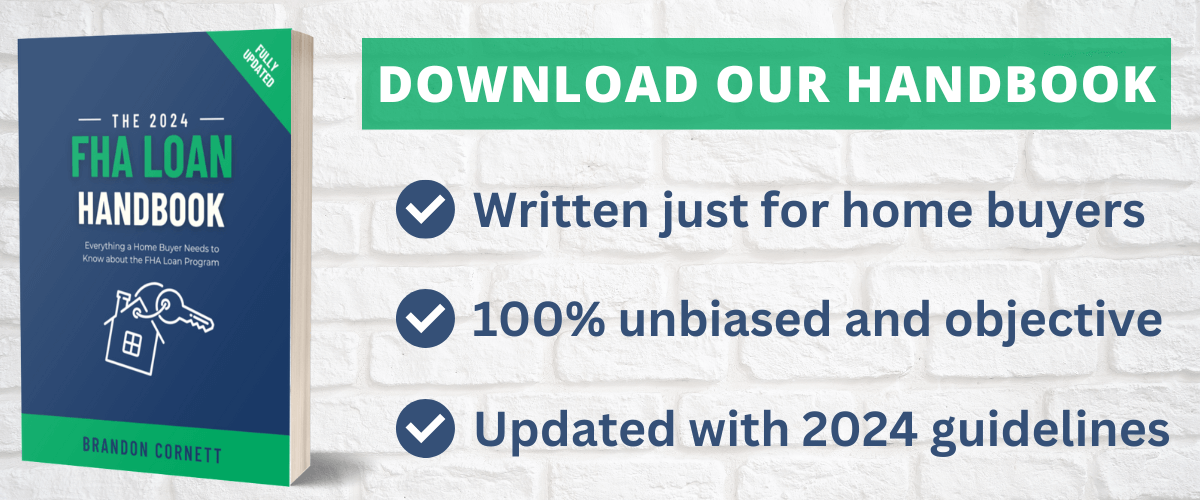This is part of an ongoing series in which we answer common questions about FHA-insured mortgage loans. Today’s question is: Why would the FHA not approve a home for financing, under this program?
Why Would the FHA Not Approve a Home?
There are several reasons why a home might not be eligible for this mortgage insurance program. Property conditions are a common cause, but there are others as well. Here are some of the most common reasons why the FHA might not approve a particular home for financing.
1. It does not meet minimum property requirements.
The FHA loan program is managed by the Department of Housing and Urban Development (HUD). And HUD has specific guidelines as to the condition of the home that is being purchased.
If the house falls short of these guidelines — and the issue cannot be corrected for some reason — then the home might not be approved for FHA mortgage financing.
The property evaluation takes place during the FHA home appraisal. The appraiser basically wears two hats during this process. He must determine the market value of the house being purchased, and must also evaluate the property to ensure that it meets HUD’s minimum guidelines.
Sometimes the appraiser will “flag” an issue that can be corrected by the seller. In other cases, there might be an issue that is not so easy to fix, and this might result in FHA denying the mortgage loan.
Here are some of the issues that are commonly flagged during FHA appraisals:
- Peeling paint in houses built prior to 1978 (due to lead-based paint issues)
- Bedrooms that do not have a secondary egress point, such as a window
- Safety-related issues like windows that don’t open or missing handrails by stairways
- Electrical issues such as exposed wiring that may present a hazard to the occupant
- An installed system (plumbing or electrical) that does not function properly
- A roof that is in disrepair (rotting, leaking, etc.)
- Standing water in the basement or elsewhere that suggests an active leak is present
These are certainly not the only items the appraiser will look for. These are just some of the most common “hits” that might result in the FHA not approving of a home.
2. The house appraises below the purchase price.
A property appraisal is usually required when a person uses an FHA loan to buy a house. In addition to evaluating the property’s condition, as explained above, the appraiser will also determine how much the home is worth in the current market.
If the appraisal “comes in low” (meaning the house appraises for less than the purchase price), then the FHA probably won’t approve the home for financing.
Depending on the situation, the homeowner /seller might be willing to reduce the sale price to reflect the appraisal amount. This would allow the deal to move forward. But it doesn’t always work that way. Sometimes the seller will refuse to lower the asking price, and this is a scenario where FHA might not approve the loan.
3.. It’s a condo, and it’s not on the “approved” list.
You can buy a condo with an FHA loan. But the condo unit has to be part of an approved condominium project.
The Department of Housing and Urban Development has specific guidelines regarding condos that can be purchased with FHA loans. Once a condominium project has been approved, it will be added to a list that is maintained by HUD.
If a home buyer attempts to use an FHA loan to purchase an unapproved condo, the loan will likely be rejected.
4. It’s a vacation or investment property.
The FHA loan program is not designed to finance vacation properties for investment homes. There are other certain scenarios where a borrower could purchase a second home using an FHA loan, such as when a job relocation is necessary, or when a second home is needed to accommodate a growing family.
But the secondary residence being purchased cannot “be a vacation home or be otherwise used primarily for recreational purposes.” (Source: HUD Handbook 4000.1)
So if you already have a primary residence, and you’re trying to finance the purchase of a second property in order to rent it out or to serve as a vacation home, it probably won’t fly.
These are some of the common reasons why FHA might not approve of a home that is being purchased. These are not the only issues that can arise, but they are some of the most common.
Disclaimer: This article is based on information found within HUD Handbook 4000.1 (the Single-Family Housing Policy Handbook) and other sources. While we do our best to ensure the accuracy of all content published on this site, we are not an official source for FHA loan information. The Federal Housing Administration and the Department of Housing and Urban Development are the official sources. Please refer to them with your questions and to access more detailed information.
